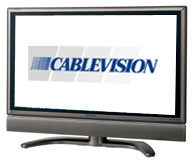Cablevision agrees to sell itself to the Dolans
 Cablevision Systems announced an agreement today to sell itself to its founding family, the Dolans, for more than $10.5 billion in cash.
Cablevision Systems announced an agreement today to sell itself to its founding family, the Dolans, for more than $10.5 billion in cash.
With the addition of debt, the total price is nearly $23 billion.
The deal, which the company characterized as “definitive” in a statement today, resolves the tortured stalemate between the Dolans and the board over the future of the company. During the last three years, the Dolans have sought and failed three times to buy out the public shareholders of Cablevision, which has 3.1 million cable subscribers in the New York metropolitan region.
The company also owns Madison Square Garden, Radio City Music Hall, the New York Knicks and the New York Rangers.
Under the terms of the deal, the Dolans would pay $36.26 a share for the company, an 11 percent premium to the closing price of $32.67 yesterday and a 21 percent premium to the $30-a-share offer the family made in January.
Founded in 1973, Cablevision encompasses three business units, led by the telecommunications services division. That business consists of cable television, high-speed Internet access and telephone service. Its Rainbow programming unit is home to channels like AMC and the Independent Film Channel. And its Madison Square Garden business consists of the professional sports teams, its MSG Networks programming and its entertainment sites.
The Dolans have long been led by Charles F. Dolan, Cablevision’s founder and chairman, and a son, James L. Dolan, the chief executive. In a written statement, the two Dolans said the deal to take the company private would allow them to carry on their family tradition.
“We believe the best way to continue this tradition in today’s increasingly competitive environment is as a privately held company,” the statement said. “This new structure and an entrepreneurial perspective will enable us to keep growing the business with our talented management team and dedicated employees.”
The two men have at times waged public campaigns against each other, notably over Voom, an ill-fated satellite TV venture. James eventually won that battle, and Cablevision shut down the unit in 2005.
That same year, the Dolans made an offer to break the company in two and buy Cablevision’s cable television assets. But they were forced to withdraw the offer before the board formally rejected it. The family then offered to buy the company for $27 a share last year, and later sweetened the offer to $30 a share.
Those bids were rejected after a bitter public battle by the board, which said it had warned the family that it would not accept its offers. Its directors said that they had already given the Dolans “general guidance” about how much the family would need to pay to reach a deal.
The major players in that decision was a special committee of the board consisting of Thomas V. Reifenheiser, a former media banker at Chase who had represented Cablevision, and a retired Navy vice admiral, John R. Ryan, who was a chancellor of the State University of New York. The two men wrestled with a decision for months before rebuffing the Dolans, who with a 20 percent equity stake and 70.4 percent of the voting power control the company.
Investors have in the past been concerned about whether the Dolans were trying to take the company private at a discount. Such skepticism has been heightened by the flurry of management-led buyouts in recent years that have led shareholders in some instances to question whether such cozy arrangements were giving them the best possible deal.
In January, Richard Greenfield, an analyst with Pali Research, wrote a note titled “Do Not Let Chuck and Jim Dolan Steal CVC.”
In that note, Mr. Greenfield said he considered Cablevision worth at least $33.50 a share.
Wariness over the intentions of the Dolans have been fed in part by the family’s declaration that it would sell the company to no one else.
The deal is still subject to regulatory approval and what Cablevision called a “majority of the minority” approval by shareholders: a majority of shareholders who own the company’s Class A stock not held by the Dolans or Cablevision executives.
(Published by The New York Times, May 2, 2007)